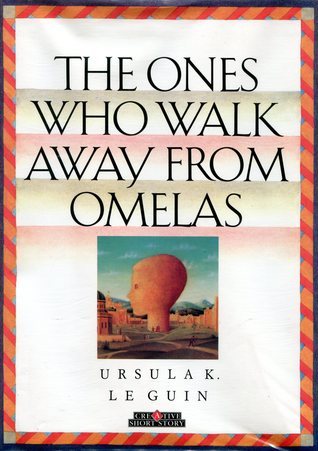The Ones Who Walk Away from Omelas Book Summary
TL;DR
Ursula K. Le Guin's "The Ones Who Walk Away from Omelas" presents a haunting parable about a utopian city whose joy is built upon the suffering of a single child, raising profound questions about morality and societal happiness.
What is The Ones Who Walk Away from Omelas about
"The Ones Who Walk Away from Omelas" explores the ethical implications of a seemingly perfect society that thrives on the misery of an innocent child. Le Guin crafts a vivid picture of Omelas, a utopia filled with joyous inhabitants, yet reveals that their happiness is contingent upon the silent, hidden suffering of a child locked away in a dark room. As the narrative unfolds, it prompts readers to confront the moral costs of societal happiness and the justifications of complicity in systemic injustice. First published in 1973, this thought-provoking tale has since become a cornerstone of speculative fiction, inviting discussions on ethics, societal structures, and the nature of happiness.
The Ones Who Walk Away from Omelas 5 Key Takeaways
The Paradox of Utopian Happiness
Omelas is depicted as a utopia where joy is abundant, but this happiness is deeply intertwined with the suffering of one child. This paradox raises questions about the ethics of sacrificing one for the many, challenging readers to reflect on the moral implications of their own societal structures.
The Role of the Individual
The story emphasizes the choices individuals must make regarding complicity in injustice. Those who walk away from Omelas symbolize moral courage, choosing to reject a society built on suffering, highlighting the theme of personal accountability in the face of societal norms.
Narrative Perspective
Le Guin employs a unique narrative voice, shifting between third-person omniscience and a conversational first-person address to engage the reader. This technique makes the story feel immediate and personal, encouraging readers to ponder their own beliefs about morality and happiness.
Symbolism of the Child
The child serves as a powerful symbol of the hidden sacrifices that often underpin societal prosperity. By focusing on this innocent figure, Le Guin forces readers to confront uncomfortable truths about the costs of their own comforts and privileges.
Moral Dilemma
The heart of the story lies in the moral dilemma it presents: is it justifiable to maintain happiness at the cost of an individual's suffering? This question lingers in the minds of readers, compelling them to examine their own views on justice and happiness.
Top The Ones Who Walk Away from Omelas Quotes
- "They all know it is there, all the people of Omelas. Some of them understand why, and some do not, but they all understand that the happiness of Omelas is based on the suffering of this child."
- "To exchange all the goodness and grace of every life in Omelas for that single, small improvement: to throw away the happiness of thousands for the happiness of one?"
Who should read The Ones Who Walk Away from Omelas?
This book is ideal for readers interested in speculative fiction, moral philosophy, and social critique. It invites them to reflect on the complexities of happiness, injustice, and the ethical dilemmas that arise in societal structures, making it a thought-provoking read for anyone seeking deeper understanding of human morality.
The Ones Who Walk Away from Omelas Best Reviews
- "A stunningly powerful work that forces us to confront the ethical costs of our happiness. Le Guin masterfully blends fantasy with profound philosophical questions." - The New York Times
- "Le Guin's Omelas is a thought-provoking tale that challenges our understanding of morality and societal happiness. A must-read for anyone interested in speculative fiction." - The Guardian
People also liked these summaries
The Ones Who Walk Away from Omelas FAQs
What are the main themes of "The Ones Who Walk Away from Omelas"?
The main themes include the ethical implications of happiness built on suffering, the choices individuals face regarding complicity in injustice, and the moral dilemmas surrounding society's definition of happiness.
How does Le Guin's narrative style affect the story?
Le Guin employs a mix of third-person omniscient and first-person narrative styles to engage readers, making the philosophical questions more immediate and personal. This approach encourages readers to reflect on their own beliefs and moral choices.
Why is the child in Omelas so significant to the story?
The child represents the hidden suffering that underlies societal happiness, symbolizing the sacrifices often made for the comfort of others. The plight of the child forces readers to confront uncomfortable truths about justice and privilege in their own lives.
